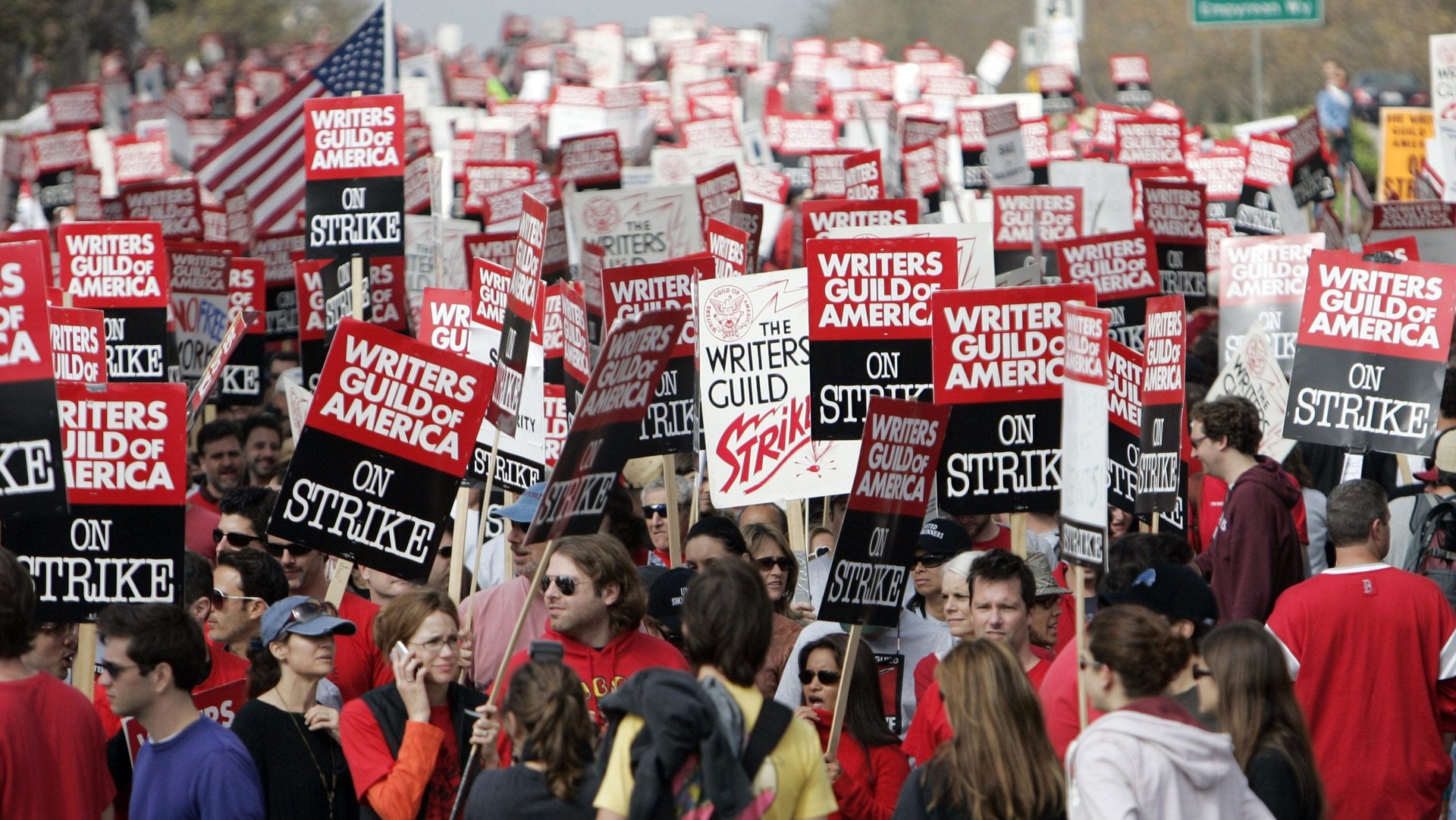The looming Hollywood writers’ strike could leave America without political comedy in the age of Trump
The impending Hollywood writers’ strike will have far-reaching consequences across the entertainment industry, but none as immediate or as politically significant as the likely halt of US late-night TV production. Enjoy your Colbert, Bee, Oliver, and Conan now, because they may soon go off the air for awhile.


The impending Hollywood writers’ strike will have far-reaching consequences across the entertainment industry, but none as immediate or as politically significant as the likely halt of US late-night TV production. Enjoy your Colbert, Bee, Oliver, and Conan now, because they may soon go off the air for awhile.
Members of the Writers Guild of America (WGA)—the union representing 12,000 TV and film writers—will begin voting Tuesday (April 18) on whether or not to authorize a strike. The guild’s deal with the Alliance of Motion Picture and Television Producers (AMPTP), which represents major studios like Disney, Warner Bros., and Fox, expires May 1.
If no new deal is reached by then, the writers will walk, and with them, new scripts for TV shows.
The group’s last walkout, during the 2007-2008 TV season, led to the cancellation of more than a dozen scripted series, shortened and postponed seasons, and an estimated $2.1 billion hit to the Hollywood economic engine, according to the Milken Institute. The strike ended after 100 days when the WGA and the AMPTP finally reached a deal.
While the strike’s effects reached every sector of television, from premium to cable to broadcast, the first shows to go were the late-night talk shows. The Daily Show, The Colbert Report, The Late Show, Saturday Night Live, and several others immediately began airing reruns. (Some returned after a few weeks without writers, but obviously weren’t the same quality.)
Today, in an age when political satire is more important than ever in the US, the absence of those shows would be glaring.
If its members vote to authorize another strike, the WGA will use the threat of a walkout as its chief bargaining chip when talks resume next week. The writers, whose incomes have declined on average the last few years, want wage increases and bigger contributions to their health-care plan. They’ve argued that they’re receiving a smaller and smaller slice of a larger and larger pie.
Last time, dozens of shows like Breaking Bad and Lost were forced into shortened seasons. Most soap operas had to switch to non-union writers but continued airing on schedule. But the late-night shows went off the air altogether. Most of the production staff of Saturday Night Live were laid off just days after the strike began.
For TV-watchers, some see another strike as a blessing in disguise. With more shows to keep up with than humanly possible, a break in new content would give viewers time to catch up. That’d be a boon for Netflix, not only since it’s not restricted to the rigid production schedule of other networks (and thus wouldn’t be as affected by a writers’ strike), but also because it already has a massive repository of on-demand content for people to watch if their live scripted shows go off the air. Netflix, for what it’s worth, says it’ll be hurt by the strike too.
But certainly not as much as CBS, NBC, ABC, or any other network with a flagship late-night comedy program.
In this era of “peak TV,” a few shortened seasons or cancelled shows might not even be noticed by the average consumer. What they will notice, though, is if Stephen Colbert or John Oliver suddenly disappear, leaving no one to mock those in power.